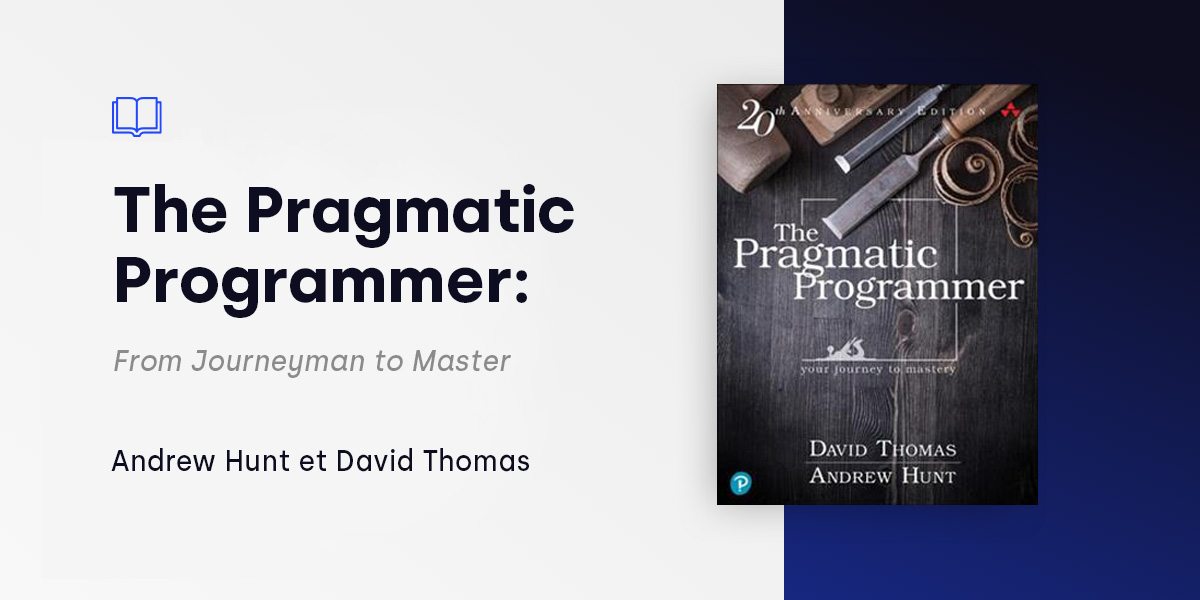This is what authors David Thomas and Andrew Hunt demonstrate to us in our book of the month. Both authors guide us on the path to accepting this fact and not chasing an impossible dream.
“It’s a personal growth book for programmers. This is a very good help to improve. There are examples that sometimes lack details, but it gives plenty of general rules that allow you to establish good habits to differentiate yourself in projects. »
– Frédérick Capovilla, back-end developer
David Thomas and Andrew Hunt dissect the profession of programmer by comparing it to the work of a craftsman. In their book, they highlight curiosity and the desire to constantly improve one’s practices, and give lots of tips and tricks for progressing as a programmer. Many parallels are made between carpentry and programming, which makes reading very captivating and adds a little lightness.
This book does not claim to provide a ready-made solution, but to suggest good practices to implement on a daily basis.
The little extra: At the end of the book, there is a cheat sheet of 70 tips around the themes of programming, communication, team management, and project analysis, etc.
What lessons can we learn from this?
When meeting with clients, take notes on any needs they mention and then have them proofread to ensure you have mutual understanding.
Defining a glossary with customers and team developers will allow you to use the same words for the same actions and avoid misunderstandings.
Continuous learning is essential. Go look for new techniques to improve yourself and broaden your horizons
Inspirational quotes from the book
“You can’t write perfect software. Did that hurt? It shouldn’t. Accept it as an axiom of life. Embrace it. Celebrate it. Because perfect software doesn’t exist. No one in the brief history of computing has ever written a piece of perfect software. It’s unlikely that you’ll be the first. And unless you accept this as a fact, you’ll end up wasting time and energy chasing an impossible dream. »
“Tools amplify your talent. The better your tools, and the better you know how to use them, the more productive you can be. »
“All software you write will be tested—if not by you and your team, then by the eventual users—so you might as well plan on testing it thoroughly. »
Who do you recommend The Pragmatic Programmer: From Journeyman to Master to?
This book is perfect for junior programmers. It is also practical for seniors to reinforce the practices they have acquired.

